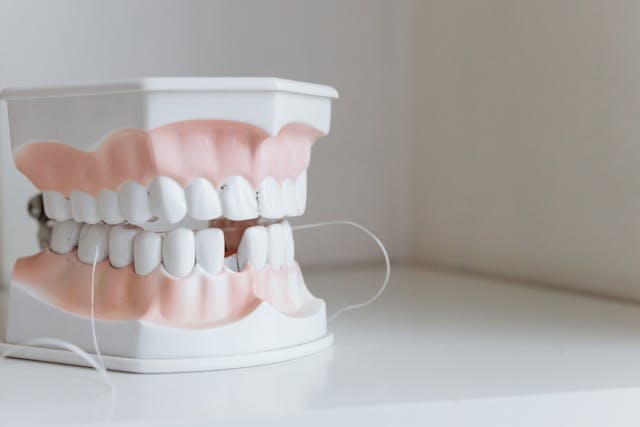Selecting the appropriate dentures involves understanding the types available and how they meet individual needs. False teeth play a key role in restoring oral function and appearance, so the selection process is highly detailed. This guide outlines a few different types of dentures and who can benefit from them the most.
Understanding Types of Dentures
There are several types of dentures, each designed for different circumstances. The most common types include full, partial, and implant-supported:
Full/Custom Dentures
Full (also known as custom) dentures replace all the teeth in the upper or lower jaw and are best suited for those who have lost all their natural teeth in a specific arch. They have pink gums made of plastic or acrylic. They rest on the gums and replace several teeth lost in the same row.
Partial Dentures
Partial dentures are commonly selected by individuals who still have several healthy, natural teeth. These can help fill gaps left by missing two or more teeth while preserving the placement and function of the remaining teeth. They are typically designed with metal clasps or attachments to anchor them securely to natural teeth.
Implant-Supported Dentures
Implant-supported dentures provide enhanced stability by attaching to dental implants surgically placed in the jaw. People looking for a more permanent and durable solution are the best candidates for these. Implant-supported options are ideal for those who want additional security while eating or speaking.
Consulting with a Specialist
Seeking guidance from a specialist is an integral step when selecting the appropriate false teeth. Specialists evaluate oral health, the condition of the gums, and jawbone density to determine the most suitable denture type. They also think about factors such as a patient’s budget, comfort preferences, and lifestyle needs.
A denture specialist brings expertise in fitting and adjustment to be sure the dentures align properly with the oral tissue and deliver optimal function. Ill-fitting teeth can cause discomfort, sore spots, and even difficulties in speaking and chewing. The personalized fitting process addresses these potential issues by measuring the oral cavity precisely.
Specialists may also provide insights into caring for them long-term. This may include brushing with specific toothpaste and soaking it every night. Proper cleaning and maintenance help prolong the lifespan of false teeth and maintain their appearance.
Selecting the Right Dentures
When choosing dentures, it is helpful to assess factors such as materials, durability, and aesthetics to avoid unexpected issues. Depending on the type and patient preferences, they are made from acrylic, porcelain, or metal. For instance, full dentures often use materials that replicate the appearance of natural teeth. Implant-supported false teeth may incorporate stronger materials for added stability.
A good fit enhances not only functionality but also confidence. Advances in technology have made it possible to achieve a more natural-looking smile. Individuals seeking the best combination of comfort and appearance should bring their preferences into discussion with their specialist.
Find a Denture Specialist
Choosing the right dentures involves understanding the types available with each being suited to different needs. Consulting with a specialist is key for a proper fit and overall success. These professionals provide expertise in evaluating oral health, selecting materials, and ensuring optimal comfort. Whether someone is new to dentures or seeking a better solution, working with a specialist helps make the process precise and effective.

